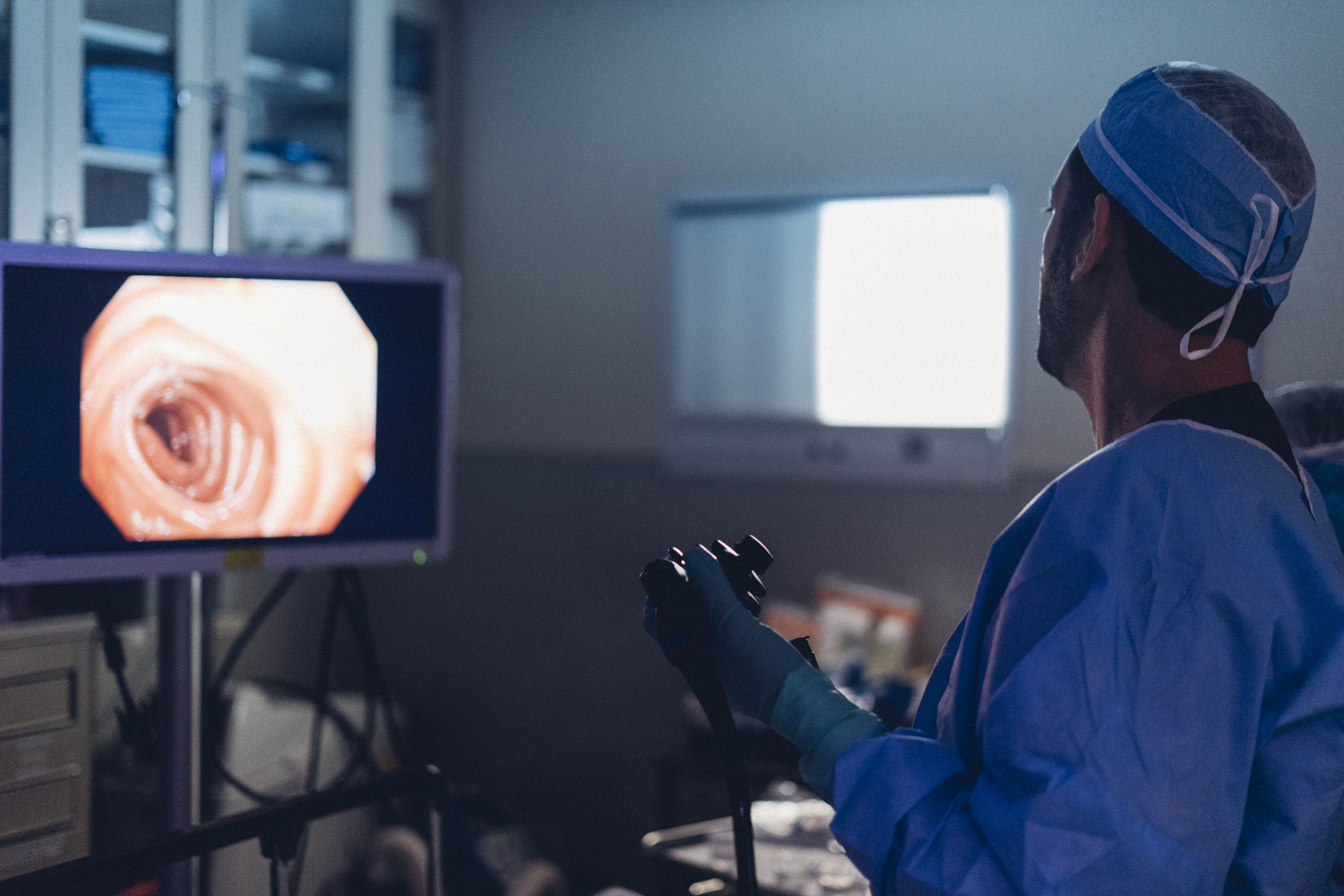Colonoscopy
Colonoscopy is considered the “gold standard” for colorectal cancer screening. A colonoscopy is a procedure that enables Dr. Berookim to evaluate the inside of the colon (also known as the large intestine or large bowel). A colonoscope is a four-foot flexible tube approximately the width of a finger that features a camera and light at the tip. A colonoscopy is most often performed to find and prevent tumors or polyps (precancerous growths) that can develop into colon cancer. It is a preventative technique that can be extremely effective in preventing, diagnosing and treating colon cancer. Secondly, a colonoscopy can be used to examine the cause of blood in the stool, abdominal pain, diarrhea, a change in bowel habits or other abnormality.

It has been recommended that all healthy people with no increased risk for colon cancer should have their first colonoscopy at age 50 and again every 10 years. However, the risk for colon cancer is higher amongst African Americans, so this population should begin screenings at age 45. Also, anyone with a family history of colon cancer should also start the screenings at age 45. Colonoscopy is both diagnostic and therapeutic and actually effectively prevents colon cancer. Colon cancer is very treatable if found early, which is why getting screened is very important.
Why do I need a Colonoscopy?
A colonoscopy can help with the diagnosis and treatment of colon cancers and other diseases. Symptoms that should trigger this procedure include:
- Blood in the stool (bright red, black or very dark)
- Change in bowel habits (diarrhea or constipation)
- Narrowed stools (about the thickness of a pencil)
- Unexplained anemia
- Rectal bleeding
- Unintentional weight loss
- Continuing fatigue
These symptoms are a few guidelines, and sometimes none of these symptoms are present in the early stages of colon cancer. This reinforces the importance of having a qualified gastroenterologist, like Dr. Berookim, who can find the polyps which can potentially turn into cancer if left untreated.
Dr. Berookim thoroughly recommends that all patients receive a colonoscopy at age 50 and then again every 10 years following to help prevent colon cancer. Colon cancer is the second most common cancer in the United States. However, this cancer grows slowly–so if caught early, it may be treatable.
Removal of a Polyp (polypectomy)
If a polyp is detected during a colonoscopy, Dr. Berookim will remove it. Polyps are growths that if left untreated can potentially turn into cancer and cause rectal bleeding. To remove the polyp, Dr. Berookim will insert a wire loop through the colonoscope and sever the polyp. No pain is involved in this process. Removing polyps is an important process because it helps to prevent and even cure colon cancer.
Colonoscopy Preparation
Before your colonoscopy procedure, Dr. Berookim will provide you with specific instructions regarding emptying and cleaning the bowel before the procedure. It is extremely important that the colon be prepped in a way that is acceptable for Dr. Berookim to ensure the most successful results.
As with most surgeries, it is important to tell Dr. Berookim all medications that you are currently taking and if you have any medication allergies. Also, he needs to be informed if you are taking any over the counter medications, vitamins, etc. If you are taking any type of blood thinner, Dr. Berookim needs to be made aware since you may not be able to use these drugs before this procedure.
You must have a friend, family member or spouse attend the examination with you, as you will be given sedation medications and will not be able to operate a vehicle afterwards. The companion will need to drive you home.
How long will a Colonoscopy last?
The entire colonoscopy process typically takes around 30 minutes from start to finish, depending on the individual colon and what additional procedures are being done, the time frame could be more or less.
Colonoscopy Recovery
The sedation medication from the procedure typically wears off within 30-60 minutes. Depending on what Dr. Berookim found during the colonoscopy or if you had a polyp removed, he may give you certain dietary restrictions. Also, after the procedure you may feel bloated, due to excess air during the examination. Depending on whether any biopsies were obtained during the procedure, Dr.Berookim will give you the results any recommendations once results from pathology are ready.
Are there risks associated with Colonoscopy?
Although colonoscopy is important for the prevention and detection of colon cancers and is a very safe and effective procedure, there are still small risks. One risk that could occur is a tear through the bowel wall that could allow leaking of intestinal fluids. If this were to happen, surgery would be needed for treatment. Sometimes minor bleeding can also occur from where a polyp was removed. Finally, drug reactions can rarely occur and with any test, unfortunately, the pathology can sometimes be missed. Once again, these are all very rare but still important to mention.



